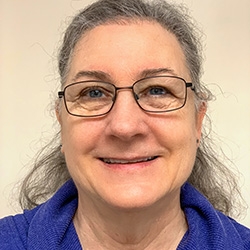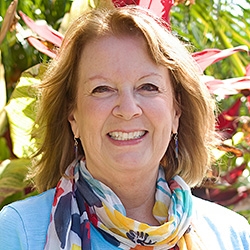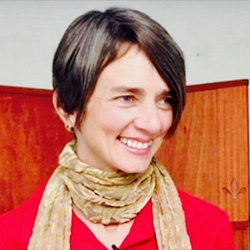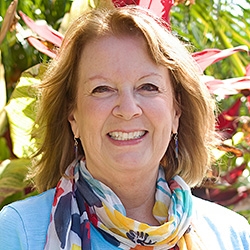

Search Results: communication
-
-
-
-
Communicating with a client or patient with a mental health diagnosis can be tough. This guidebook introduces Nonviolent Communication, helping you develop more clear, compassionate, mutual satisfaction and potentially create conditions that heal those who look to you for help. With this guide learn to notice when your approach is likely to trigger defense and how to shift that to more authenticity, understanding and trust.
-
Sometimes I hear people say things like, “I didn’t do Compassionate Communication this week.” Or “I tried Compassionate Communication when I was arguing with my wife last week.” Compassionate Communication is not a thing to do, or to pull out of our bag of tricks once in a while. Compassionate Communication is a consciousness of valuing everyone’s needs and of valuing connection more than being right, winning or protecting ourselves. It is a way of living.
-
Exploring how to keep NVC natural and authentic without sounding mechanical or formal.
-
Have you ever used the phrase "it was just a miscommunication."? We're often good at identifying when communication breaks down but not so good at finding out what went wrong and how we can improve. In this NVC Life Hack, we take a look at different types of communication requests and how they play out in a role play.
-
For many, spending time with relatives over the holidays may be challenging. In addition to the love and care we may feel, family gatherings can bring up old hurts or expose painful differences. How many family meals have been marred by tense silence or devolved into harsh argument?
-
If you’re interested in improving your relationships, advancing in your career, or enhancing your capacity for change in life in general, communication is a powerful lever. Presence, listening, bringing curiosity and care, focusing on what matters, and pausing with silence, are all key. Read on for five foundational and advanced core practices you can start using today to improve your communication.
-
How can Nonviolent Communication (NVC) create more constructive conversations in the workplace? This video explores the key difference between calling someone in and calling them out, emphasizing the power of care over annoyance.
-
Sitting with not knowing is an NVC skill because its the opposite of reactivity. In our haste to find relief from the discomfort of not knowing, we often become defensive, jump to conclusions, and blame and criticize others. Sitting with not knowing requires us to suspend our distrust, tolerate fear and uncertainty - creating space within us. NVC provides a way forward to enter into a space of wonder, possibility, and creativity.
-
How can Nonviolent Communication (NVC) create more constructive conversations in the workplace? This video explores the key difference between calling someone in and calling them out, emphasizing the power of care over annoyance.
-
Sylvia Haskvitz shares NVC basics to help you improve understanding and connection in communication.
-
Here are five practical ideas for creating simple agreements with a group when conflict arises.
-
If you want a better connection it's crucial to be mindful about how your communication affects your partner. This means noticing and keeping eye contact, observing body language, and checking for their reactions. You can also share in small increments, check in before sharing vulnerable thoughts, and express what you notice. Give yourself empathy when you notice that you want to be right more than you’re wanting to be connected.
-
When people have a hard time communicating in a loving way (e.g. criticize, blame, shut down, act out, etc.) it can be very challenging. Using empathy-based communication we can connect to the underlying feelings and needs behind their behavior. By recognizing when to do what (empathizing, stepping back, etc), we can respond with compassion and clarity rather than reactivity.
-
-
Trainer Tip: Practicing NVC in situations that are not emotionally charged can give you valuable practice to help you maintain a compassionate consciousness when circumstances are charged. It can help you stay in that consciousness for a longer period of time. You can also practice by naming the needs that you got met in the situations you enjoy.
-
- Gain a deeper insight into the spiritual practice of NVC as taught by Robert Gonzales
- Enhance your emotional intelligence and self-compassion
- Learn compassionate self-talk techniques and cultivate more inner peace
- Approach change with a peaceful mindset, rather than anxiety and fear
-
We only have this decade to make radical changes to avert crossing over into an unlivable Earth. What's essential is a critical mass of people with capacity to respond to many enormous, daunting social-environmental challenges. This means on a wider scale, responding to conflict, fear, hate, injustice and violence with the ability to see our commonality underlying our differences. And to feel part of a larger whole so we can birth natural caring, togetherness, and cooperation.

Quick Links
Subscription Preferences
Stay In Touch!
Looking for ways to keep up with NVC Academy news, get special offers, free resources, or words of inspiration? Here are five ways to stay engaged:
















